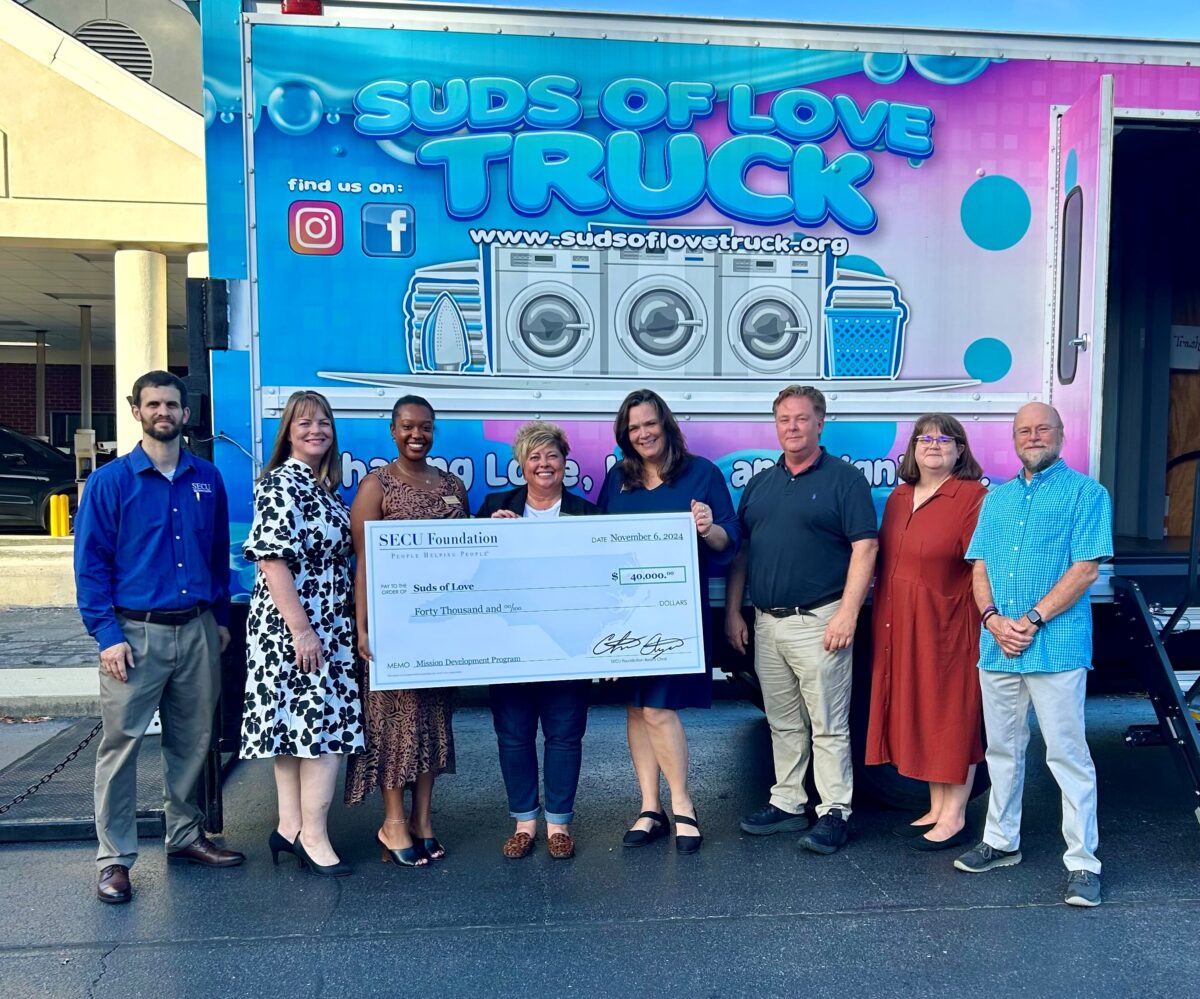Big donations make splashy headlines — that’s especially true when a foundation awards a sizeable grant to fund programs that support essential services like financial literacy classes, affordable housing initiatives, or a food pantry. But in North Carolina, one foundation is taking a different approach with capacity-building grants.
SECU Foundation gives nonprofits the tools they need to grow. Whether it’s money for strategic planning, leadership development, or marketing tools, these capacity-building grants help organizations scale their impact long after the grant period ends. It’s a strategy that could inspire other credit union foundations to think beyond programs and invest in long-term sustainability.
A History Of Help
20 Years Of Impact
Since its founding in 2004, SECU Foundation has committed more than $300 million in grants, loans, and scholarships. Download its 2024 impact report today.
State Employees’ Credit Union ($52.9B, Raleigh, NC) formed the SECU Foundation in 2004 as a philanthropic vehicle rooted in credit union values for the people of North Carolina. The credit union funds the foundation through a $1 monthly checking account maintenance fee, which today generates approximately $20 million a year.
“We are now a statewide funder present in all 100 counties of North Carolina,” says Caitlin Duke, associate director of grants administration. “Our four pillars of funding are still the same to this day: housing, healthcare, education, and human services.”
The foundation provides support in these areas through three separate scholarship programs, an internship program, and three categories of grants: capital, programmatic, and capacity-building, now branded as the Mission Development Grant (MDG) Program.
Small Organizations. Big Impact.
SECU Foundation created its capacity-building grant program in 2017 for nonprofits that lacked the infrastructure for the foundation’s typical funding initiatives.
“A lot of our “no’s” were due to lack of knowledge and understanding,” Duke says. “Many nonprofits that were requesting funding had never managed a capital campaign, lacked a strategic plan, and some didn’t have websites.”
The program includes a $40,000 grant as well as access to a dedicated consultant. Recipients may use funds for essential functions such as program expansion, staff recruitment and development, marketing, and technology. Organizations with budgets less than $1.5 million in Tier 1 counties, or counties that are considered the most economically distressed, get priority.
“Our board looks at things with the eye of, “Would this happen without us?”” Duke says. “If not, those are the projects we want to bring forward and lift up.”
QUICK FACTS
MISSION DEVELOPMENT GRANT PROGRAM
COMMITTED: $5M
ASSISTED: 120 organizations
REACH: 100 counties
As of April 2025, MDG has supported 120 North Carolina organizations. This year, the SECU foundation welcomed 12 new organizations to the program, including some that are receiving first-time funding outside of scholarships and loans.
“We’ve had great success stories,” Duke says. “We’ve had some come back and receive seven-figure funding for what they initially asked for.”
For example, when the founders of Samaritan Colony, a 12-bed residential addiction recovery nonprofit facility for men, first approached the SECU Foundation, Duke and her team had to tell them they weren’t ready for what they were applying for.
“We gave them a $40,000 capacity-building grant in 2019 and connected them with a consultant,” the associate director says. “They hired a resource development director, established a structured capital campaign, reengaged the foundation in 2021, and now the SECU Women’s Recovery Center at Samaritan Colony is scheduled to open this year.”
Construction of the center began in 2022. It will have 14 beds and help an estimated 136 women annually.

Continuous Collaboration
The funds granted through the capacity-building program are far from a one-and-done contribution. It’s often the beginning of an ongoing partnership supported by SECU’s expansive branch network.
“Since we have branches in all 100 counties, we bring employees and community leaders into site visits, meetings, and celebrations with grantees,” Duke says. “That way, when we go back to Raleigh, those relationships can continue.”
The credit union offers eight hours of paid volunteer time off, and branches often hold hyperlocal fundraisers, drives, and collections for grantees, sometimes even years later.
But support from SECU Foundation alone doesn’t guarantee success. Collaboration among large organizations is key, with funding partners often referring organizations to MDG when they are unable to work with them yet.
“We’ve become known in our small philanthropic world in North Carolina as a pretty big capacity-building funder,” Duke says. “The opportunity to get out and network with others from across the state doing the same kind of work, sharing contacts, is powerful.”
In addition to hosting panels and working with other entities, the foundation also hosts its annual Mission Development Grant Conference. The event brings together grantees, consultant partners, SECU Foundation staff, and nonprofit leaders for a full day of content, workshops, and meals. Topics include strategic planning, fundraising, and board development. The only thing attendees pay for is their lodging.
Ultimately, Duke says the capacity-building program is an example of putting people helping people into practice.
“Looking at nonprofits that might not otherwise have opportunities, that’s our membership,” she says. “As a foundation, we have a great opportunity to emulate that in another way.”
When Challenges Call, Callahan Executive Roundtables Answer. Callahan Roundtables offer C-suite executives the chance to connect with like-minded leaders to tackle challenges, share best practices, and shape upcoming strategies. If there’s a hot topic, Callahan Executive Roundtables has you covered — there’s even an event for foundations. Learn more today.